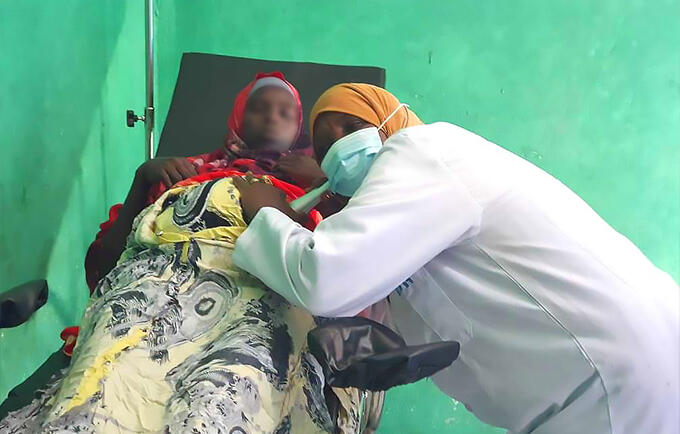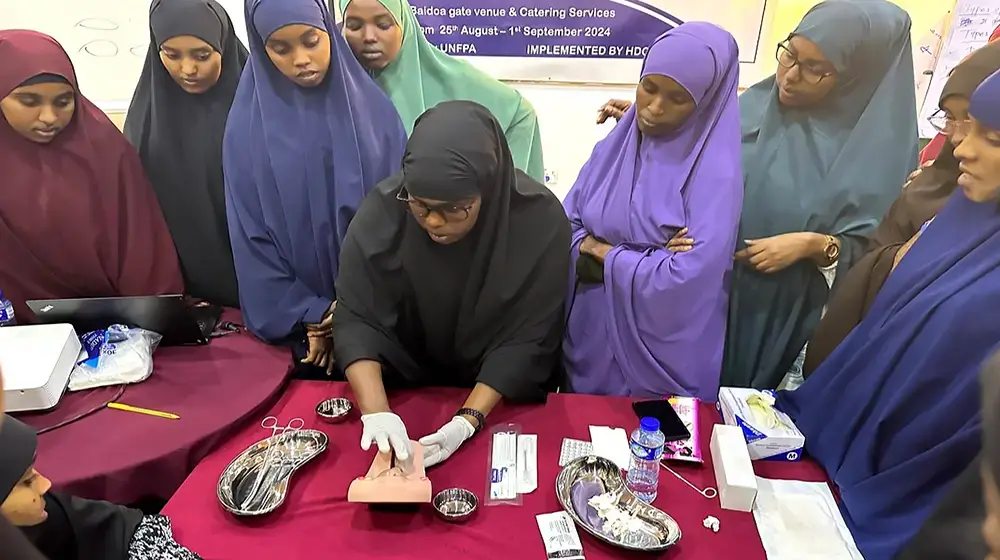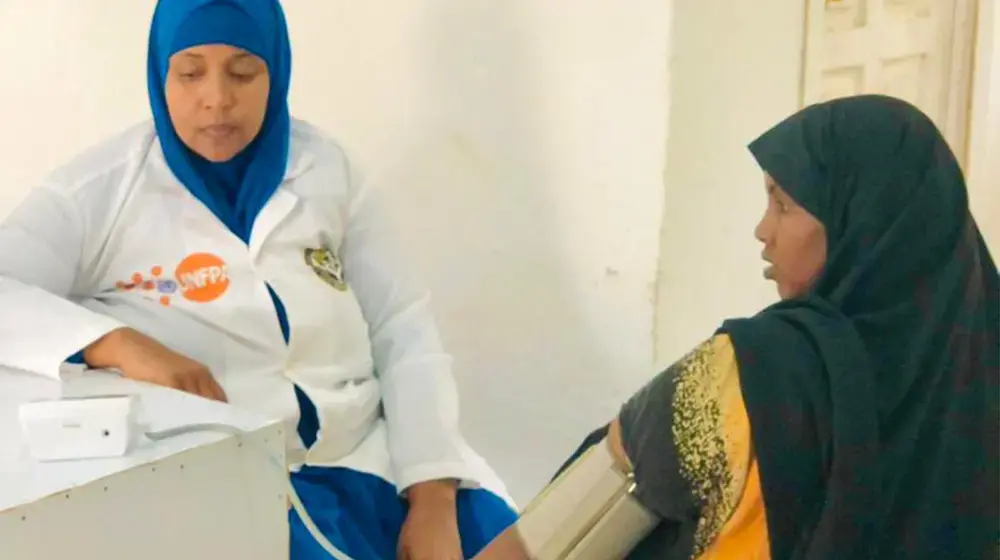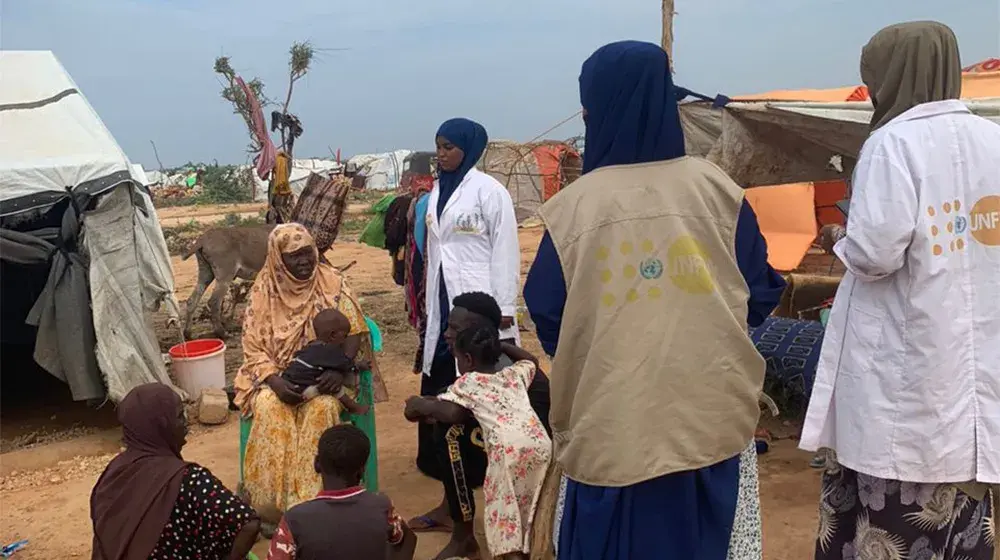Farhiya Abdi is an 18-year-old first-time mother living in Hurdiya village in Bari, Somalia. She gave birth to a baby boy in the only health facility in her village, Hurdiya Health Centre. The facility, which just opened in February this year, has since provided free maternal and reproductive health services to more than 250 women. The services include focused antenatal care, deliveries and postnatal care services.
Hurdiya Health Centre is part of the cyclone Gati response project, an integrated reproductive health and Gender-Based Violence (GBV) project. The Somali Red Crescent Society (SRCS) is implementing the project with financial and technical support from UNFPA Somalia.
Cyclone Gati, the strongest tropical cyclone ever recorded in the East African country, made landfall on November 22, 2020. The cyclone left behind a trail of destruction; hundreds of houses were destroyed, several boats and fishing gears damaged, and many families lost large numbers of livestock. Women and girls continue to face the worst consequences, including rising cases of GBV.
Farhiya was among one of the first clients that gave birth in the facility. She first came to the facility for a checkup because she felt weak and had an irregular heartbeat, shortness of breath, and lightheadedness. After a couple of tests, Farhiya was diagnosed with anaemia, a condition in which one lacks enough healthy red blood cells to carry adequate oxygen to the body’s tissues. She was given iron supplements for her anaemia, among other supplements. Farhiya eventually gave birth to a healthy baby boy two weeks after she came to the facility for the checkup.
“I was very lucky that I went to the facility for the checkup. I received good quality care from qualified staff. If I didn’t get treated for anaemia, the midwife told me I would have needed a blood transfusion, which I cannot get in Hurdiya. I would have travelled 10 hours to the nearest facility, and I wouldn’t have afforded to get the transfusion,” says Farhiya.
She says she is grateful to the organizations that made it possible to establish the health facility in her area; SRSC and UNFPA Somalia. “The facility offers free services. It is a real life-saver. I can’t imagine what would happen to me if I had to travel for more than 10 hours in the poor condition that I was in,” Farhiya says.
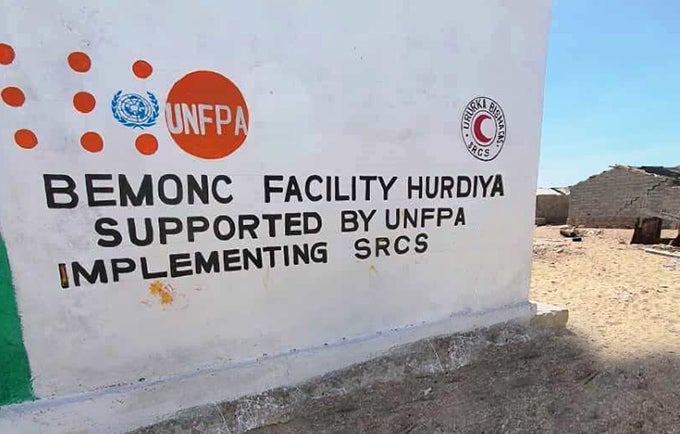
Hurdiya is a small fishing village in the northeastern Bari province of Somalia, situated in Ras Hafun on the coast of the Guardafui Channel. It is the centre of Hafun district, and the easternmost town in continental Africa. The nearest town to Hurdiya with a comprehensive emergency obstetric and newborn care facility is more than 400 kilometres away on very rough roads. Unfortunately, the condition of the roads was made worse by the cyclone.
The cyclone Gati response project is funded under the United Nations Central Emergency Response Fund (CERF) and implemented by SRCS in three districts affected by the cyclone, namely El-Dahir, Hafuun and Hurdiya. In addition to the fixed health facilities, three mobile clinics are attached to each facility, which has a team of qualified health professionals that provide maternal and reproductive health care services to the nearby nomadic population, also affected by the cyclone Gati.
The project aims to provide quality maternal and reproductive health services to the affected communities. This is so that each birth is attended by skilled birth attendants. Furthermore, each complication is managed or referred from the Basic emergency obstetric and newborn care (BEmONC) facilities and mobile clinics to the nearest facility that can provide comprehensive emergency obstetric care services. This is also so that all mobile clinics and BEmONC facilities are able to respond to the COVID-19 pandemic appropriately.
---Samira Mohamoud

